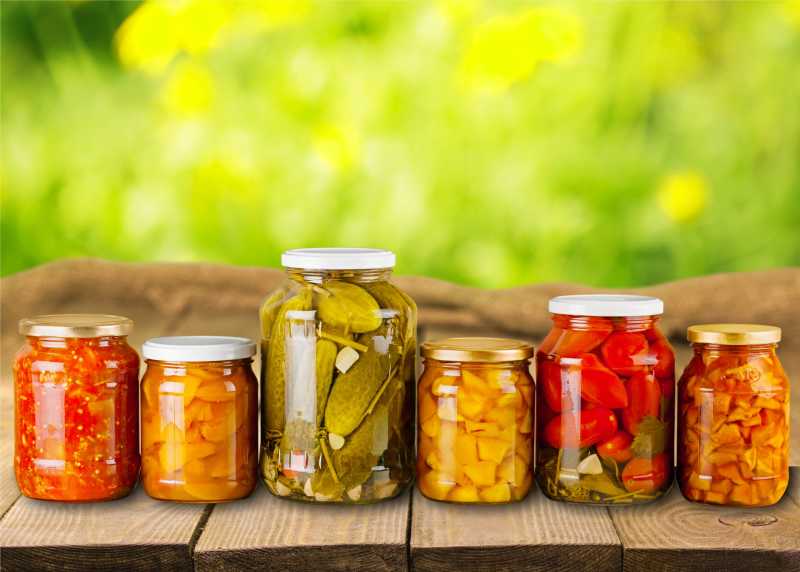When it comes to canned food, many people associate its long shelf life and convenience with "excessive preservatives," leading some to label it as "junk food." But is this really true? In fact, canned food has been misunderstood. Bakery China will continue to share more industry professional content with you.

Canned Food Doesn’t Need Preservatives—Because It Doesn’t Have to
The GB2760-2024 National Food Safety Standard for the Use of Food Additives, which officially took effect on February 8, 2025, clearly stipulates that preservatives are not allowed in canned foods.
According to the National Economic Industry Classification and Codes established by the National Bureau of Statistics, canned products are mainly divided into meat and poultry cans, aquatic product cans, fruit and vegetable cans, and other canned foods. They all share one common feature: a long shelf life, typically 2 to 3 years.
The GB7098-2015 National Food Safety Standard for Canned Foods requires that sealed semi-finished products must undergo sterilization within 2 hours. The mainstream method is thermal sterilization, which adjusts time and temperature to achieve commercial sterility while maximizing the retention of the food's nutritional content. This is generally divided into low-temperature and high-temperature sterilization.
With advancements in food processing technology, new methods such as modified atmosphere sterilization and microwave sterilization have emerged. These techniques offer shorter sterilization times, better results, and better preservation of the food's color, flavor, and nutrients.
After such sterilization processes, microorganisms have no chance of survival. Following high-temperature sterilization, the cans are cooled to below 40°C, creating a vacuum inside the container that seals the lid tightly, making it difficult to open. Throughout this process, no microorganisms survive inside the can, and external microorganisms cannot enter, eliminating the need for preservatives.
Canned Food Can Be Nutritious Too
Because canned food can be stored for a long time without spoiling, some believe it is less nutritious than fresh food. However, the facts might surprise many.
1. Fruit and Vegetable Cans—Fresher and More Nutritious Than Room-Temperature Storage
Canned fruits and vegetables are typically processed directly from fresh ingredients. During processing, minerals like potassium, calcium, and magnesium are not reduced by sterilization, and dietary fiber is preserved. Although heat-sensitive vitamins like vitamin C and B vitamins may experience significant losses, during transportation and storage, nutrient loss is minimal, with further vitamin C loss usually not exceeding 15%.
Additionally, canned foods often undergo minimal further processing, resulting in less nutrient loss. Canning has also been shown to increase the protein (>7%) and dietary fiber (>5%) content in various legumes while reducing lectin levels. Some fruit cans even add vitamin C as an antioxidant to extend shelf life.
2. Meat Cans
While the high-temperature sterilization process for meat cans may cause losses in heat-sensitive B vitamins, it has little effect on protein and n-3 polyunsaturated fatty acids.
Moreover, fish cans retain a significant amount of vitamin D. Foods rich in vitamin D are rare, but mackerel is one of the more common sources, containing 16.1 micrograms per 100 grams. Even canned mackerel retains 7.3 micrograms per 100 grams. Consuming 100 grams (about the size of a palm) can meet 73% of the daily vitamin D requirement for an average adult.
Canned food, far from being "junk food," is a convenient, safe, and nutritious option that has been unfairly misunderstood. With advanced processing techniques, it preserves essential nutrients and offers a practical solution for modern lifestyles.
Bakery China 2025 will continue to share more industry professional content with you, so please stay tuned!
Bakery China, organized by China Association of Bakery and Confectionery Industry (CABCI) and Bakery China Exhibitions Co., Ltd. was launched since 1997. Bakery China is the Asia Pacific‘s leading event serving the entire value chain for the bakery and confectionery market. The event presents all range of ingredient, equipment, packaging and services, and enables global leading professionals and buyer delegates to meet and share the latest innovations and thinking on manufacturing & distribution, R&D, applications and related services for bakery industry.
The 27th Bakery China would be held on May 19-22, 2025 at National Exhibition and Convention Center (NECC), Shanghai, covering 330,000 sqm show space. Over 2,200 exhibitors and 400,000 visits are expected.
Source:China National Food Industry Association





